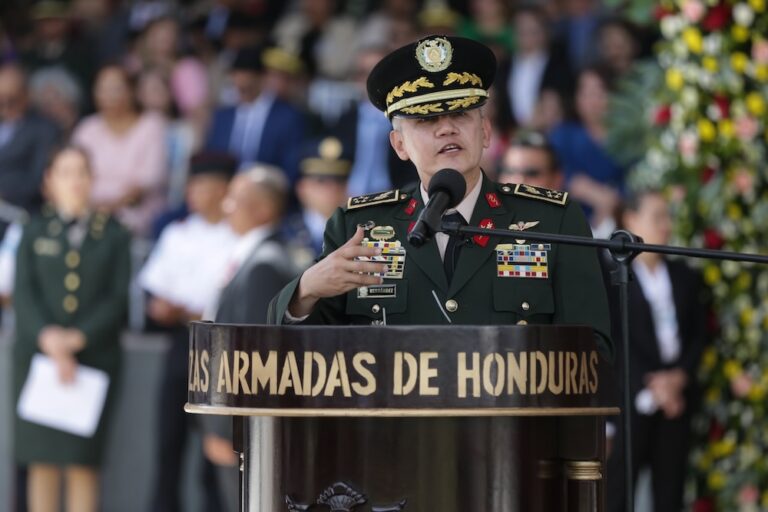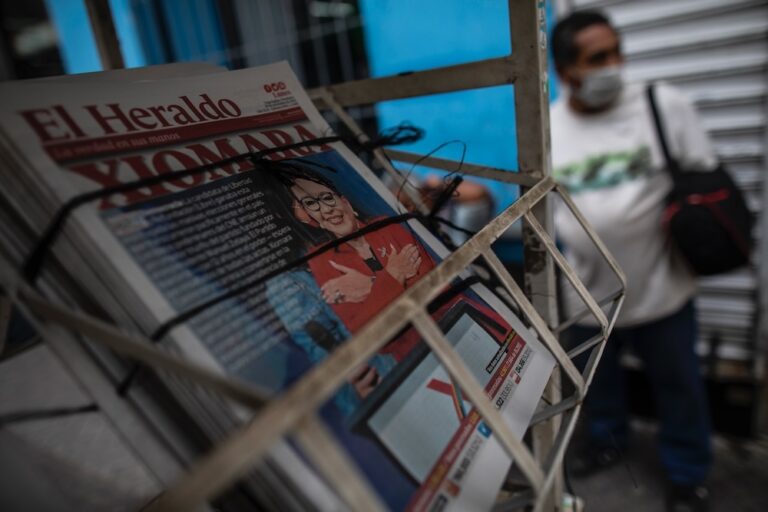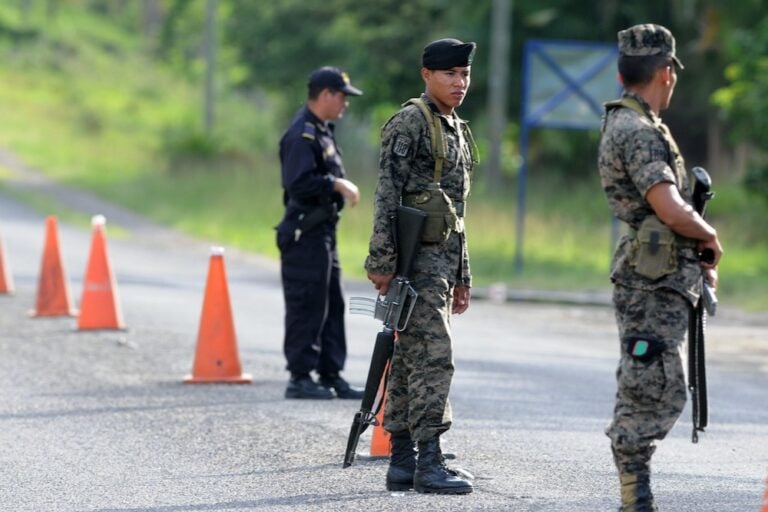The journalists were covering the forcible removal of professors from the Honduras Media Education College (COPEMH).
(C-Libre/IFEX) – On 21 March 2011, Sandra Maribel Sánchez, director of Radio Gualcho, and Globo TV camera operator Uriel Rodríguez were assaulted by the Honduran National Police.
The two journalists were covering the forcible removal of professors from the Honduras Media Education College (Colegio de Profesionales de Educación Media de Honduras, COPEMH) when, according to Rodríguez, the National Police targeted them with tear gas and rubber bullets.
“I was filming the action by the army and the police when a policeman fired rubber bullets at me, injuring me in both legs. Another group of police officers then tried to seize Sandra Maribel Sánchez’s camera,” said Rodríguez.
Nora Miselem, a member of the Truth Commission, witnessed the incident, Rodríguez added.
In a separate incident, on 22 March, David Romero, director of Radio Globo, and Lidieth Díaz, a reporter for Canal 36, were also targeted by the National Police while they were speaking with teachers who were waging a sit in at COPEMH.
“We were talking with Professor Edgardo Casaña and others about the problems they are facing. We were about to leave when tear gas grenades were thrown at our vehicle and shattered. My wife, Lidieth Díaz, fled and hid in a neighbouring house,” Romero explained.
Romero and Díaz left their home at 7:15 p.m. on 22 March, after receiving a call from the professors at the college. “They were surrounded by the police and the army who were lobbing tear gas grenades. The teachers were concerned the security forces would raid the COPEMH premises and they wanted to inform the media,” Romero said.
Earlier in the evening, the two journalists were driving near COPEMH when they were stopped by the police and asked for their identification papers. The police said they stopped them because they were not wearing seat belts but when Romero explained he is a journalist and was on his way to cover a story, the officers seemed to recognise him or his voice from the radio.
Romero condemned the harassment as an attack on freedom of expression and on radio stations, “which try to break the silence” by covering underreported stories.
(Please note this is an abridged translation).


